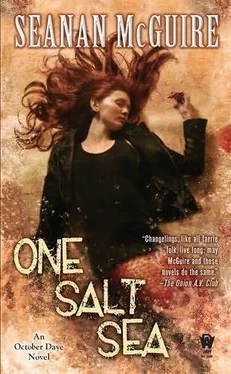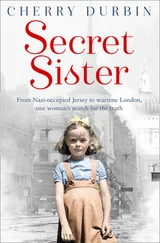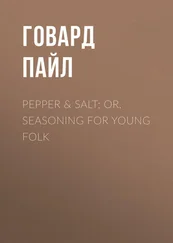“He enchants the food he serves his guests?” Quentin sounded mortally affronted.
“No. I just don’t want you getting salmonella.”
My ragged little parade made its way up the walkway to a gate that was probably state-of-the-art, once upon a time. These days, it offered no more than the illusion of security. Someone had long since broken off a key in the keyhole lock, and the deadbolt was open. The only thing the gate did right was creak when I pushed it open, rusty hinges wailing our arrival to anyone and everyone in earshot.
No one came to investigate as we stepped into the narrow, cabbage-scented entry hall. There was barely room for the four of us, and there wouldn’t have been any room at all if one of us had been bigger. According to Bucer, he was living in Apartment #4 on the second floor. I looked at the rickety stairs, frowned, and turned to push my way past Raj and Connor as I moved back toward the door.
“What now?” asked Connor.
“Hang on a second.”
The names of all the current occupants were written in faded, painfully neat ballpoint pen on little slips of off-white paper that had been taped next to their respective doorbells. According to this primitive directory, the person in Apartment 4 was actually named “K. Lyons.” Apartment 7, on the other hand . . .
“B. O’Malley,” I said, mostly to myself. I turned around again, facing my confused escorts. “We go up.”
“Up?” echoed Quentin.
“The stairs. We’re heading for the fourth floor.”
He groaned. “I was afraid you were going to say that.”
The stairs creaked with every step, and the banister was basically a haven for wayward splinters that would just love to go home lodged in our flesh. The original color of the threadbare runner was obscured by decades of ground-in mud, and the wallpaper wasn’t much better off. “I don’t think even the Luidaeg would willingly live here,” I muttered.
“What?” asked Connor.
“Nothing.” I grabbed the banister, getting two splinters in my palm for my troubles, and kept climbing.
Rickety and filthy as the stairs were, they didn’t collapse under our feet. That was about all I felt I had the right to ask, given the overall condition of the building. We reached the fourth floor without encountering anything nastier than a few exposed nails at the base of the banister.
Half the lights were out, casting the whole hallway into a deep shadow. “Follow me, and watch your step,” I said, mostly for Connor’s benefit. Out of the four of us, he had the worst night vision. He muttered something under his breath. I didn’t ask him to repeat it, and he didn’t volunteer.
Bucer’s apartment was the one closest to the outside wall. I clapped a hand over the peephole and knocked briskly, picking up more splinters from the half-shredded wood of the door in the process.
Footsteps—or something like them—approached the door from inside the apartment, followed by a scuffling sound as whoever was inside tried to get a look through the blocked-off peephole. After a few seconds of this, the sound stopped, and the steps retreated a few feet.
I knocked again.
This time, no one moved. Seconds stretched out in the silence, sliding into each other until they threatened to become minutes. I knocked a third time, pausing longer between each thud of my knuckles. There was more scuffling from inside, followed by silence.
That was probably long enough. “Open up and let us in, Bucer,” I called, loudly enough that he’d have to hear me, given his proximity to the door. “This isn’t the way Devin taught us to treat members of the family, now, is it?”
A few more seconds ticked by. The steps approached the door again, and Bucer said, “Devin’s dead.”
“True,” I agreed. “But I’m not, and you’re not, and we can either be family, or we can be enemies. Don’t you have a preference?”
This time, the answer was immediate: “Friends is better. But you said I should let ‘us’ in. Like people, plural. I’m not . . . ah. I’m not decent right now.”
I smiled almost despite myself. If there’s one thing Bucer O’Malley has never been in his life, it’s decent. “None of us is human, Bucer,” I said, pitching my voice lower to keep his neighbors—if he had any in this pit—from hearing me. “Now open the door, or I’ll start to think you don’t love me anymore.”
I heard the sound of locks being unfastened. After the third deadbolt was undone, the door creaked cautiously open, Bucer’s narrow face peeking through the gap. He wasn’t wearing a human disguise, and I could see the hairy edge of one goatlike ear curving upward from the side of his head.
More importantly, I saw that there was no chain holding the door in place. “Hi,” I said, brightly. “You going to let us in?”
Bucer hesitated. I could see him playing out the situation in his head: first he’d slam the door, and then he’d run for the nearest window, planning to escape to the street. Under normal circumstances, that might have been amusing enough for me to let him get away with it, at least until I chased him down and knocked his head against the pavement a few times. Sadly, I really didn’t have time to play around. I stuck my foot in the door before he could finish his thought.
“We’re coming in, Bucer,” I said, all brightness leeching from my tone. “We can do it as your guests, or we can do it as your interrogators. You want to pick one? Because I’m low on time, I’m low on patience, and I haven’t had nearly enough coffee.”
Amusingly, it was the last item on the list that made his eyes go wide. “Oh, uh, hey, October! Sorry, I didn’t realize it was you—sorry.” The door was pulled fully open, revealing Bucer in all his scrawny, unwashed glory. He was wearing cut-off shorts, revealing the point where his human thighs gave way to goat legs. Julie and I used to call him a bargain basement Satyr when we were all still living at Home. I’d never say anything like that now, but we were only half-kidding then. Satyrs are half-goat, half-man. Glastigs are three-quarters man, one-quarter goat—and, in Bucer’s case, one hundred percent craven scum.
“Good call,” I said, gesturing for the others to follow me as I stepped past Bucer into the apartment. Quentin and Raj were right behind me, surveying the condition of the hall with imperial disdain. Connor brought up the rear.
There was a moment, right after Connor passed the threshold, where Bucer visibly considered making a run for it. I raised an eyebrow, staring at him. Bucer’s shoulders slumped, and he shut the door.
“To what do I owe the pleasure?” he asked. The cheap carpet was thick enough to muffle the sound of his hooves, which probably kept his neighbors from reporting him for keeping livestock. These are the concerns of coexisting with humanity.
“I had a few questions for you, and this seemed more efficient than calling.” I let my gaze sweep lazily through the living room, taking in the half-filled boxes and the hasty piles of personal belongings. “Going somewhere?”
“Actually, yeah, so if you don’t mind—”
“How much did she pay you, Bucer?”
The question seemed to stop him cold. His ears trembled, giving more away than his face did; his expression was more quizzical than anything else, a man trying to find the answer to a question he didn’t fully understand. “I don’t know what you mean.”
“How much did Rayseline pay you for your help? Hell, how did she even find you?” I turned to face him, meeting his eyes with my own. “Don’t fuck around with me. I’m not in the mood to waste time kicking your ass tonight.”
“I really don’t know what you mean, October,” he said, and took a step toward me, holding his hands out in supplication. “Ain’t nobody paid me nothing since you paid me for that information on the kidnappings. I’m packing to get out of town, like I told you I was going to—like you would be, if you had any sense. It’s not too late, you know. You can ditch the preschool, blow this pretzel stand with me. We can set up business in some new city, someplace that doesn’t have the baggage this one does. You and me, just like old times . . .”
Читать дальше











